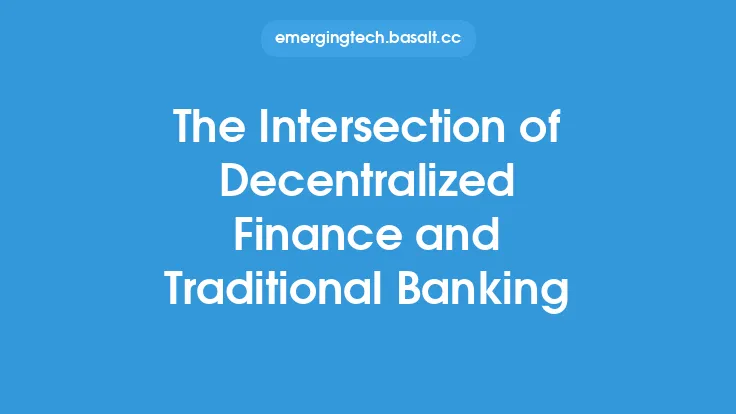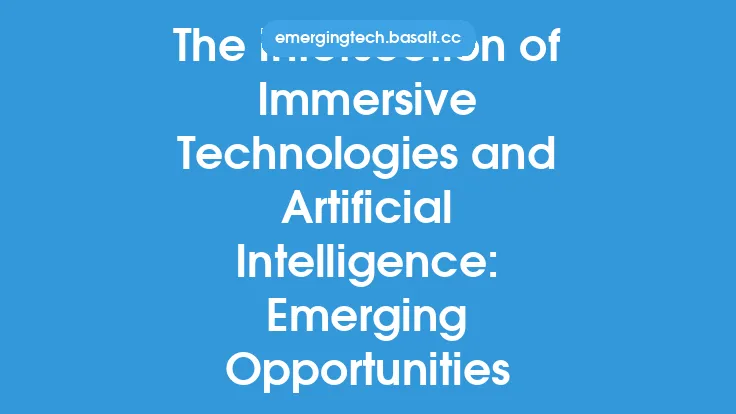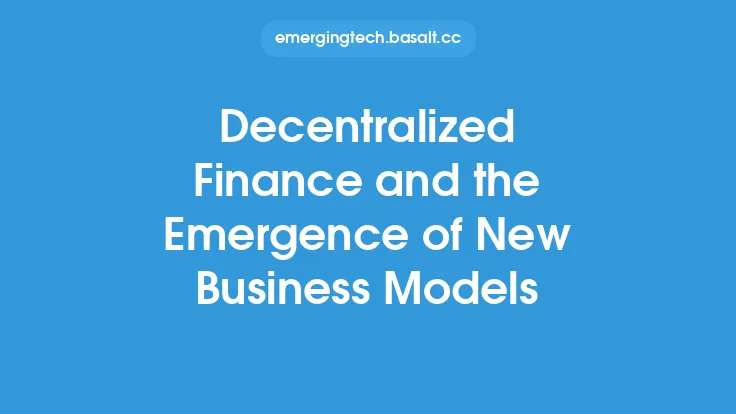The concept of inclusive finance has gained significant attention in recent years, as it aims to provide access to financial services for underserved populations, promoting economic growth and reducing poverty. At the heart of inclusive finance lies the intersection of technology and social responsibility, where financial institutions, governments, and technology companies collaborate to create innovative solutions that cater to the needs of the unbanked and underbanked. This intersection is crucial, as it enables the development of affordable, accessible, and user-friendly financial products and services that can be delivered through digital channels, thereby increasing financial inclusion.
Introduction to Inclusive Finance
Inclusive finance refers to the provision of financial services to individuals, households, and small businesses that lack access to traditional banking services. This can include savings accounts, credit, insurance, and payment services, among others. The goal of inclusive finance is to promote financial inclusion, which is essential for economic growth, poverty reduction, and social stability. Inclusive finance is not just about providing access to financial services, but also about creating products and services that are tailored to the needs of the target population, taking into account their financial literacy, income levels, and cultural background.
The Role of Technology in Inclusive Finance
Technology has played a significant role in promoting inclusive finance, as it has enabled the development of digital financial services that can be delivered through mobile phones, online platforms, and other digital channels. Mobile banking, mobile payments, and digital wallets have become increasingly popular, especially in developing countries where traditional banking infrastructure is limited. Technology has also enabled the use of alternative data sources, such as social media and mobile phone usage, to assess creditworthiness and provide loans to individuals who lack traditional credit history. Additionally, technology has facilitated the development of fintech companies, which are leveraging artificial intelligence, blockchain, and other emerging technologies to create innovative financial products and services.
Social Responsibility in Inclusive Finance
Social responsibility is a critical component of inclusive finance, as it ensures that financial services are provided in a responsible and sustainable manner. Financial institutions, governments, and technology companies have a social responsibility to provide financial services that are fair, transparent, and accessible to all. This includes ensuring that financial products and services are designed to meet the needs of the target population, and that they are delivered in a way that is culturally sensitive and respectful. Social responsibility also involves promoting financial literacy, providing education and training, and ensuring that financial services are provided in a way that is environmentally sustainable.
Key Technologies Driving Inclusive Finance
Several technologies are driving the growth of inclusive finance, including mobile banking, digital payments, blockchain, and artificial intelligence. Mobile banking has enabled the provision of financial services through mobile phones, while digital payments have facilitated the transfer of funds and the payment of bills. Blockchain technology has enabled the creation of secure, transparent, and tamper-proof financial systems, while artificial intelligence has enabled the development of chatbots and other digital interfaces that can provide financial services and support. Additionally, technologies such as biometrics and machine learning are being used to improve security, reduce fraud, and enhance the overall customer experience.
Challenges and Opportunities in Inclusive Finance
Despite the progress made in inclusive finance, there are still several challenges that need to be addressed. These include the lack of financial literacy, limited access to technology, and the need for more affordable and accessible financial products and services. Additionally, there are concerns around data privacy, security, and the potential for financial exclusion. However, these challenges also present opportunities for innovation and growth, as fintech companies and financial institutions can develop new products and services that address these challenges and promote financial inclusion.
Regulatory Frameworks and Inclusive Finance
Regulatory frameworks play a critical role in promoting inclusive finance, as they provide the necessary guidelines and regulations for the provision of financial services. Governments and regulatory bodies can create an enabling environment for inclusive finance by providing regulations that promote innovation, reduce barriers to entry, and protect consumers. This includes regulations around data privacy, security, and consumer protection, as well as regulations that promote financial literacy and education. Additionally, regulatory frameworks can provide incentives for financial institutions and fintech companies to invest in inclusive finance, such as tax breaks, subsidies, and other forms of support.
The Future of Inclusive Finance
The future of inclusive finance is exciting and promising, as technology continues to evolve and improve. The use of emerging technologies such as blockchain, artificial intelligence, and the Internet of Things (IoT) is expected to drive innovation and growth in inclusive finance, enabling the creation of new financial products and services that are more affordable, accessible, and user-friendly. Additionally, the growth of fintech companies and the increasing adoption of digital financial services are expected to drive financial inclusion, promoting economic growth, poverty reduction, and social stability. However, it is essential to ensure that the growth of inclusive finance is sustainable, responsible, and equitable, and that it promotes financial inclusion for all.





